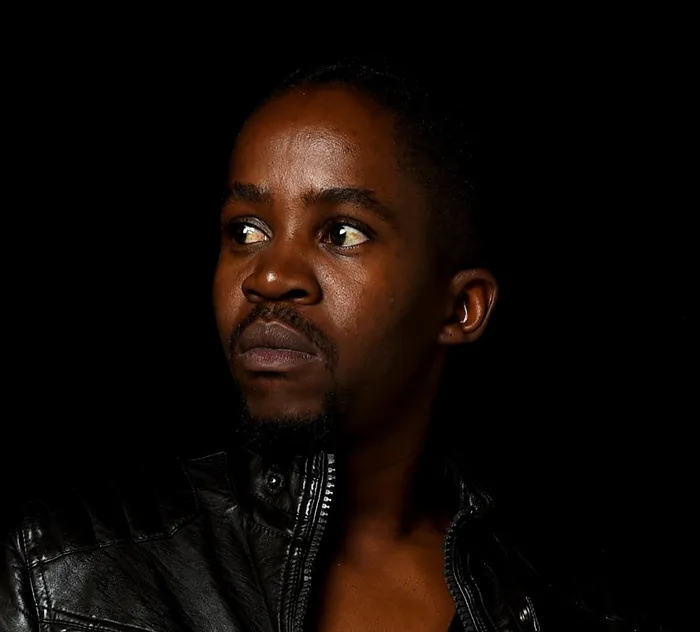Poetic Licence

Rabbie Serumula, author, award-winning poet and journalist. Picture: Nokuthula Mbatha
By Rabbie Serumula
SHE spent five long years circling the idea of her first drug run. Five years of poverty, staring at the hollow gap between herself and her children’s next meal. Five years of wrestling with the kind of choices that seem endless, but aren’t really choices at all.
When her friend returned from Brazil gleaming from her new life, there were trips, expensive clothes, and nights out in the bustling lights of Port Elizabeth. All of it glittered with the ease of money earned in shadows. The kind of money Khetho, not her real name, a mother of three, had never seen in her lifetime. It was a life that promised salvation, a quick escape from the grasping hands of unemployment. A friend introduced her to the Nigerian handlers. “One trip,” they said, “and you could make what some people do in a year.” Forty thousand rand for taking the risk.
But the promise of wealth came wrapped in fear— fear of leaving her children motherless. And so, for five years, Khetho said no.
We live in a world that tells us freedom is in our choices. That the more options we have, the freer we are. But what happens when every choice on the table is just another route to ruin? For Khetho, there was no choice. She could either let her children starve under her mother’s roof or risk it all in the drug trade. She was drowning in decisions that all seemed to lead to the same place—nowhere.
In 2017, after years of wrestling with the temptation, she gave in. It wasn’t the lure of money that broke her resistance; it was the relentless grinding down of her spirit by desperation. She had reached the point where any choice—however dangerous—seemed better than sitting in the suffocating stillness of survival.
Khetho’s first trip was supposed to take her to Brazil with a stomach full of cocaine bullets, but her body rejected the plan. Her handlers decided she wasn’t cut out for the long haul and rerouted her to Tanzania instead. There, with bags of drugs strapped to her body, she crossed borders in buses, dodging the eyes of customs officers, police, and anyone who might notice the strange bulk beneath her clothing.
When she arrived back in Johannesburg, two men in police uniforms were waiting for her at Park Station. They had her name. They had her bus ticket. It didn’t take long before she was sitting in a hotel room in Yeoville, being paid R40,000 for risking her life.
They say the more choices we have, the more empowered we are. But sometimes, there are no good options, only different shades of bad. The tyranny of choice is that it masquerades as liberation, but for people like Khetho, it is a tightening noose. The illusion of choice becomes a cruel joke when the choices themselves are empty, only varying in how they’ll break you.
Khetho’s final trip to Brazil ended with her arrest and a sentence of six years in a São Paulo prison. She would serve only one year and seven months before returning to South Africa, marked by her time in prison and forever carrying the label of ‘drug lord’ in her community.
Related Topics: